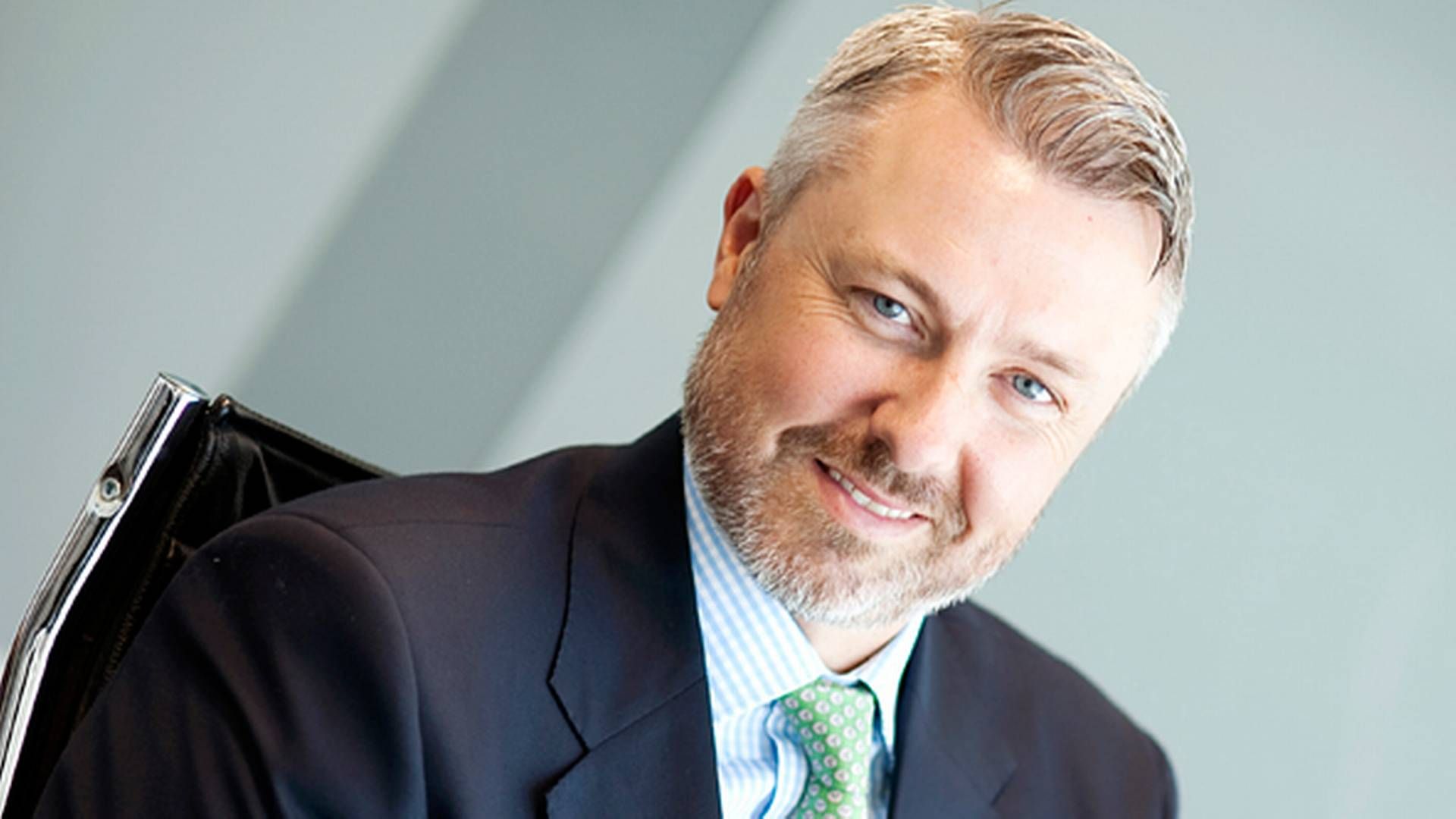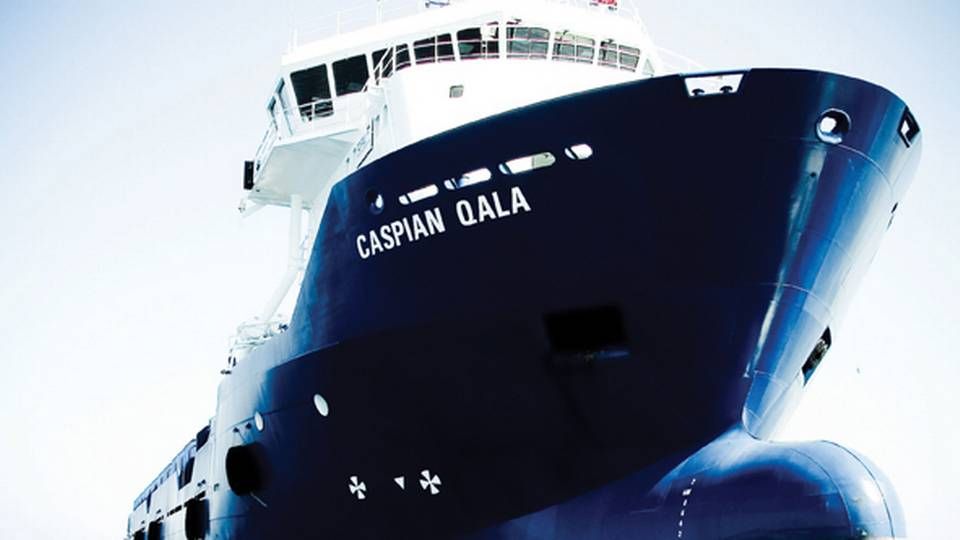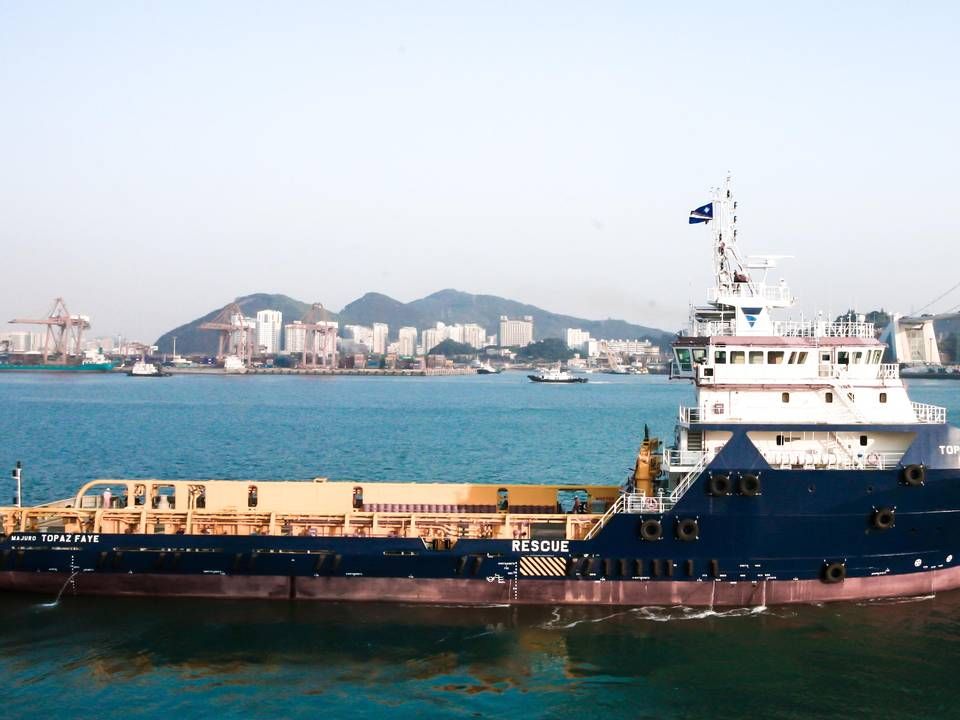Topaz: The oil market is a bloodbath

Bloodbath.
This is how Rene Kofod-Olsen, CEO of Topaz Energy and Marine, describes the oil market in the first half of this year. Topaz, based in Dubai, is as an offshore carrier highly dependent on the development in the oil markets, which have been all but good since the fall of 2014.
"We're in a market where the oil industry is going through a correction and this correction is much more severe than the previous crises because it came so suddenly. The market pretty much fell off a cliff in December when the whole market went stagnate. This has had a catastrophic influence on our market, which I can currently best describe as a bloodbath," he says in an interview with ShippingWatch.
Caution in the fall
Topaz already noted certain signs of danger during 2014 and took action.
"I wouldn't say that we have been more foresighted than our customers or our competitors, but when we spoke with our customers in 2014 we heard indications of a correction. So we took our foot off the gas and did not buy any assets during the second half of last year. That's why we are now really well positioned in a very, very rough market," says Rene Kofod-Olsen.
The company has tried to prepare for the future in several ways. First by injecting USD 75 million in equity from Standard Chartered Private Equity Bank and earlier this year by raising USD 550 million for refinancing.
The carrier's adaption does not mean that the company has been bypassed by the crisis in the market. The company has focused on its fleet of Subsea Support Vessels (SSVs), Offshore Supply Vessels (OSVs), Anker Handling Tug Supply Vessels (AHTS's) and Emergency Response and Rescue Vessels (ERRVs), but also has a small fleet of prams, crew-ships and tug boats, in all 95 vessels. The pressure on the oil companies has meant that Topaz has been in renegotiations for a portion of its contracts. But according to Rene Kofod-Olsen, the carrier itself has taken the initiative for the contracts:
"We haven't had any customers that have thrown us off of contracts, but on the other hand we have been in discussions with a number of them. We have changed the agreements with several parties to run for a longer period of time in return for a lower daily rate. We haven't been under pressure from the customers, but we have entered into discussions with them six months earlier than we normally would have done," says Rene Kofod-Olsen.
Although several contracts have been renegotiated, it does not mean that Topaz is completely safe in the oil market, which according to Rene Kofod-Olsen's expectations will take longer than usual to recover.
"We have to be prepared to be able to make money in much smaller margins than before. We hope that we can benefit from only having a small part of our business in the spot market and the largest part of our contracts are long-term," says Rene Kofod-Olsen who has served as CEO of Topaz for close to three years.
Consolidation is the consequence
Topaz has only one vessel left employed in the North Sea and therefore does not need to idle any ships, which is common among players in the Northern market, including Solstad, Farstad and Maersk Supply Service. This does not mean that the Caspian Sea, the Middle East and West Africa where Topaz primarily works, have run clear.

Photo: Topaz
The pressure has previously caused Maersk Supply Service among others to point to consolidation in the offshore carrier market. They share this expectation at Topaz as well.
"Our entire industry is very divided with about 10-15 big companies and many small players at the global level. There are many opportunities for consolidation. I think that there will be companies that join forces in coming years in order to bring costs down," says Rene Kofod-Olsen and adds:
"We believe that we are well-padded for organic growth but also for mergers and acquisitions, so we believe that we will play a role in the consolidation."
Topaz does not have any specific acquisition candidates on the table but highlights that whole companies as well as portions of fleets from other companies could be interesting for the carrier.
The big players in the offshore carrier industry are Bourbon and Tidewater which are competitors to Topaz in all of Topaz's markets. Rene Kofod-Olsen assesses that Topaz is at the bottom end of the world's ten largest offshore carriers.
West Africa did not boom as expected
In 2014, Topaz had a good year in revenue and on the bottom line, but declined slightly in the first quarter this year. The interim report for the first quarter showed that the bet on the West African market had not made the splash that they desired.
The revenue fell in the first quarter to USD 85.2 million from USD 89.4 million in the same period in the year before. The earnings also fell in this period to USD 1.1 million, a decline of 88 percent from USD 9.2 million in the first quarter 2014.
"West Africa has definitely been our biggest challenge in recent years and only now, has it become possible to enter into longer contracts down there, where we have previously worked a lot in the spot market. We expect that it will improve during this year," says Rene Kofod-Olsen.
In total, Topaz has 15 percent of its fleet of in all 95 vessels, employed in West Africa.
Topaz is headquartered in Dubai and the company's history goes back to 1973 to the company Nico International which is now a subsidiary of Topaz. Nico International was created as a company following the big oil boom in the Middle East, Topaz writes on its website.
New vessels boosted Topaz' result in 2014
Related articles
New vessels boosted Topaz' result in 2014
For subscribers
Topaz' growth engine losing steam
For subscribers
West Africa a hot-spot for Topaz
For subscribers




















